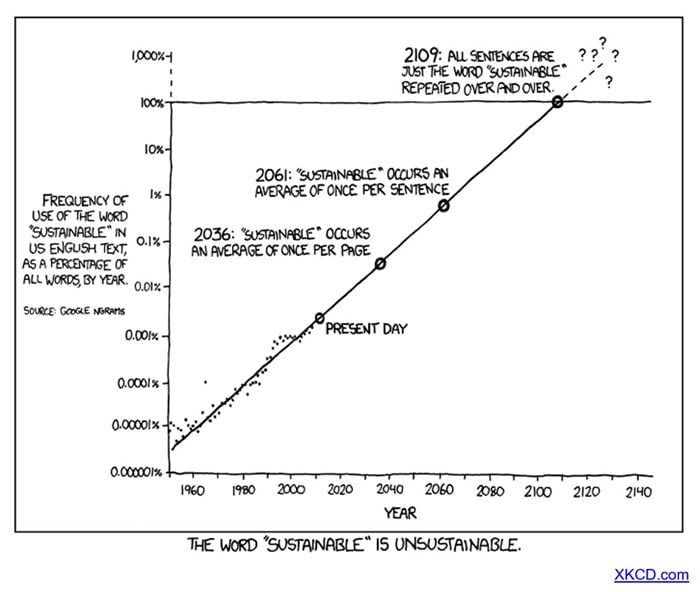What Are ESG Factors?
Incorporating environmental, social, and governance (ESG) factors into investment processes and decision-making is becoming increasingly prevalent when investing in the debt capital markets. With global green and sustainable debt volumes hitting close to $500 billion in 2019, more than double that of two years previous (according to BNEF and Bloomberg), the demand for ESG-themed finance looked set to grow in 2020. It is too soon to tell how the coronavirus (COVID-19) pandemic will impact this trajectory.
The focus of many companies at this point is on survival. This may push ESG concerns to the bottom of the pile. However, many ESG investors are closely monitoring market participants’ strategies during the crisis, for example worker welfare and the treatment of employees.
ESG factors cover a wide spectrum of issues that would not traditionally have been part of financial analysis, but in today’s markets may have relevance financially. ESG factors are diverse, and there is no set definition for what might be included in the metric. ‘Environmental factors’ may include climate change, policies towards emissions, natural disasters, extreme weather, and so on. ‘Social’ factors may include population/demographic changes, income, employee welfare, the ‘living wage’, diversity and inclusion, and human rights. ‘Governance’ factors may include ownership structures, policies and procedures, transparency and accountability, and cybersecurity.
Though the lack of a precise definition is not without its challenges…

ESG During the Coronavirus Pandemic
In the opening weeks of the coronavirus pandemic, ESG funds have appeared to be weathering the storm better than traditional funds that may have been considered safer bets for investors.
According to a recent Bloomberg analysis, the average ESG fund has fallen by roughly 12 percent this year, which is about half the decrease seen by the S&P 500 Index over the same period. A separate analysis of about 200 funds by Morningstar found that ESG funds have fared better than their conventional counterparts, and their performance is overrepresented in the top quartiles of their peer groups.
Research conducted even before the current crash supports the idea that ESG funds do better than traditional funds during times of market volatility. One 2019 white paper noted that ESG funds were more resilient during downturns, and a Morningstar analysis found that, when the S&P 500 fell by more than 7 percent during the first week of February 2018, two-thirds of ESG funds outperformed their peers.
Of course, the stronger performance of ESG funds in the current crisis may be largely because ESG funds have avoided or limited their exposure to fossil fuels and other industries heavily reliant on oil and gas, such as airlines and cruise ships, which has insulated ESG funds from the collapse in the price of oil.
On the other hand, the argument could be made that ESG funds would be more likely to include companies that are transparent about their supply chain. When companies provide data about their supply chain and their contractors, investors can do a better job of identifying risks. ESG funds are also more likely to contain companies that would fare well in the current climate, such as distance learning, telecommuting, and distance medicine, designed to produce a positive social change.
ESG in the Structured Finance World
In 2019, as evidence that investor preferences are changing and investments in well-governed entities that create a positive social and environmental impact are growing in prominence, the Loan Markets Association, Asia Pacific Loan Market Association, and Loan Syndications and Trading Association launched the ‘Green Loan Principles’ and ‘Sustainability Linked Loan Principles’, which have been designed to provide ESG criteria for loan products and to give credibility to loan products that meet ESG criteria.
Following on from this, throughout the structured finance markets there are an increasing number of ‘green’ financing products emerging. Green loans or bonds are those whose proceeds are applied specifically for environmentally friendly or sustainable purposes – for example, building solar or wind farms or investing in new green technologies. The Green Loan Principles also enshrine an expectation that green loans will require ongoing reporting and tracking to make sure the loans are being used for their intended purposes. Furthermore, whilst the Sustainability Linked Loan Principles do not contemplate loan proceeds being used for a particular purpose, they do expect and recommend borrowers to be given pricing incentives based on certain ESG-related criteria that are subject to third-party oversight.
Rating ESG Products
Historically, one of the major issues with ESG investing has been disclosure. The information on which an investor makes their decisions on a financial level is simply gathered – the company’s accounts can be examined and the figures are externally verifiable. With ESG factors, the practice until recently had been for the company under examination to provide its own figures and disclosures. To address areas of concern with this approach, a growing number of investment indices now hinge on companies’ rankings for ESG criteria, with some banks even offering better borrowing terms to companies with strong ESG scores. Several credible ESG ratings have been established, for example the Dow Jones Sustainability Index, the FTSE4Good Index, Bloomberg ESG data, and the MSCI ESG Indexes. Two ratings specific to the structured and real estate finance industries are the KBRA ESG ratings and the GRESB benchmarks.
- KBRA, a credit rating agency that is seen as a leader in the ESG space, analyses all credit-relevant factors when assigning fund ratings. When relevant to credit quality or credit risk, ESG factors are incorporated into the analysis in the same way as any other credit factors. KBRA’s methodology for rating investment fund debt mainly incorporates environmental and social factors in its assessment of asset quality. Each asset within the portfolio is examined on its own to determine its credit quality, after which a weighted average quality is assigned to the fund’s portfolio. Environmental and social issues generally influence asset quality based on sector-specific or asset-specific considerations.
- The GRESB benchmarks are private real estate’s leading ESG benchmark. The GRESB benchmarks have now been in existence for over 10 years. GRESB was formed following demand from three pension funds to begin posting ESG data, and today more than 1,000 portfolio entities and $4.1 trillion in real estate are currently subjected to its scoring system. GRESB’s annual evaluations are now the benchmark for ESG-linked assessments in the real estate finance industry. Many portfolio managers use the evaluations to assess their own sustainability credentials.
However, there are still a number of concerns with ESG ratings. ESG ratings remain unregulated, and unlike credit ratings are not governed by specific triggers such as breaching a certain threshold of leverage. With so many different methodologies on the market, from a growing number of providers, there can be a wide spread of views on the same company. One of the biggest challenges in rating a company’s ESG performance is that much of the data remains self-reported. Many companies offer up data only on metrics they perform well on. On top of that, the data is typically unaudited. Rating agencies have reported spending significant amounts of time looking at other datasets such as regulatory fines or product recalls to vet what they have received from companies. Turning all this unstructured data into actionable insights may prove to be an opportunity for those willing and able to exploit it, however.
Recent Developments in the UK and Europe
Great Portland Estate’s ESG-linked facility
In the UK, on 6 February, UK real estate investment trust Great Portland Estates (GPE) announced a £450 million unsecured revolving credit facility with five banks – Santander, NatWest, Wells Fargo, Lloyds Bank, and Bank of China. The facility is priced at 90 basis points for a term of five years with a two-year extension option and is the first such ESG-linked facility by a UK real estate investment trust. Under the terms of the deal, a margin increase or decrease of up to 2.5 basis points will be applied based on whether GPE meets annual sustainability targets across three key performance indicators. All margin adjustments will be given by GPE to registered charities focused on environmental initiatives. These KPIs include annual pre-agreed targets and are based on:
- A target to decarbonise GPE’s existing buildings by reducing portfolio energy intensity by 40 percent by 2030.
- A target to build net-zero-carbon new buildings from 2030 by reducing the embodied carbon of new build developments and major refurbishments.
- Providing better quality urban greening measures by increasing the biodiversity net gain across the GPE portfolio.
The Property Industry Alliance’s ‘best practice framework for a responsible real estate industry’
In February, UK-based real estate sector bodies representing more than £1.6 trillion of commercial real estate internationally established a universal set of principles guiding the behaviour and purpose of the industry. The agreement follows consultation between many leading UK real estate associations: the Association of Real Estate Funds, British Council for Offices, British Property Federation, Commercial Real Estate Finance Council, Investment Property Forum, Revo, RICS, and Urban Land Institute. Bill Hughes, chairman of the Property Industry Alliance, said that “now more than ever any business that does not recognise the crucial importance of behaving in a socially and environmentally responsible manner will not be sustainable over the long term.”
Led by the Property Industry Alliance, the best practice framework sets out seven key principles to advance the social, environmental, and economic benefits of responsible business practices across the real estate sector. Each principle asks the real estate finance community to consider questions about the net positivity of their assets on both the environment and society; whether they encourage their supply chain to operate in ways that value environmental, socioeconomic, and community considerations; how they ensure and demonstrate accountability for their actions; and whether buildings have policies on the collection and use of data. The seven core principles are structured around (1) climate change and the environment; (2) environmental and social impact; (3) balancing profit and wider impacts; (4) health and well-being; (5) diversity and inclusion; (6) accountability and transparency; and (7) data.
Europe’s first green CMBS
In February, Goldman Sachs’s River Green Finance 2020 commercial mortgage-backed securities (CMBS) issuance securitised two loans, totalling €196.2 million. The loans were both written against the River Ouest office building in Bezons, a suburb of Paris. River Green is the first European CMBS to comply with the International Capital Market Association’s ‘Green Bond Principles’, which provide guidance to issuers of green bonds. Investors proved keen, with all four tranches pricing within guidance. If it sets a precedent for future CMBS, this could prove to be a landmark in sustainability and environmental efforts in European commercial real estate finance. This was also the first European CMBS of the year, indicating that CMBS remains a vital form of financing for lenders in Europe.
First Italian ESG-linked loan
In Italy in January 2020, French bank Crédit Agricole CIB and Dutch bank ING announced a 50-50 collaboration on a five-year loan provided to Italian asset manager DeA Capital Real Estate, secured by a LEED Gold-certified prime mixed-use office and retail asset located in Milan’s Piazza San Babila. The building was refurbished last year to the green standard. This deal was heralded by both banks as their first green real estate loan in Italy.
Going Forward – Coronavirus as the ESG Acid Test?
Currently, there are no hard and fast rules about how ESG principles can be deployed in the financial markets. ESG factors are broad and diverse, and there is no precise definition of what constitutes an ESG investment. ESG financing is still very much in its infancy, with plenty of ESG products to be launched over the next few years (many of which may not yet have been thought up!).
Though the focus of many companies during the coronavirus pandemic will be purely survival, ESG concerns have not gone, and will not go, away. Once the crisis has passed, the practice of investing in companies that conform to ESG standards will surely continue to grow.
Logically, the coronavirus pandemic presents an opportunity for investors with ESG mandates to take a deep dive into the track record of a company ahead of their capital allocation decisions. This is particularly true for the social and governance decisions made by companies during the peak of the crisis. We envisage the following kinds of questions to be asked of companies once the dust has settled on the coronavirus pandemic:
- How did you maintain employment?
- How well were your executives compensated during the pandemic; were compensation packages deferred or refused?
- What sacrifices did you make to ensure full salaries for your employees?
- What was your expenditure on government lobbying during the crisis?
- How did you take the burden off your customers or suppliers, tenants or borrowers, if they were faring worse than you during the crisis?
As more and more examples of good and bad social or governance strategies emerge from the coronavirus pandemic, questions such as these will arise. This may cause investors to demand, and managers to become mandated to invest in, ESG products. Investor demand for ESG-related investments is expected to increase as demographics, public opinion on social and justice issues, and the effect of the coronavirus pandemic and climate change continue to evolve.
Going forward, we encourage you to consider your own ESG principles, consider those of your company and your shareholders, and consider how you could deploy resources to take advantage of this trend following the end of the crisis and beyond.
Alston & Bird has formed a multidisciplinary task force to advise clients on the business and legal implications of the coronavirus (COVID-19). You can view all our work on the coronavirus across industries and subscribe to our future webinars and advisories.

